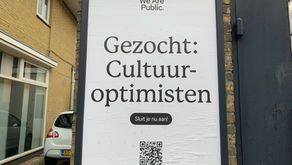Voices of London Festival
- Judith Weir
- Jul 10, 2016
- 2 min read

A bonus of attending live concerts is the chance to mosey around buildings which might otherwise be closed or rushed past. Making my now yearly pilgrimage to St James’s Sussex Gardens and the Voices of London Festival, I saw for the first time this lovely plaque at the door which commemorates Oscar Wilde’s marriage in this church.
The Festival is rising; founded only three years ago by some RAM choral conducting graduates, it is now a registered charity, and able to host an ensemble as major as the Gabrieli Consort, while mounting a week of its own trademark work – cheerfully informal but rigorously planned. My choice of concert to attend this year was possibly the biggest Festival challenge yet (but at this early stage, there are presumably quite a few ‘biggest challenges yet’ every day.) A beautifully conceived double bill of Sancta Civitas (Vaughan Williams) and The Spirit of England (Elgar) required for the first time the creation of a large symphony orchestra to accompany a group of adventurous London choruses, including Chiswick Choir, Merton Park Choral Society and Music Makers of London.
I was fascinated by this pair of works I didn’t know; and it’s a tribute to conductors Hilary Campbell and Richard Harker that they were able to convey so vividly the inner character of some elusive music while clearly marshalling a large ensemble who were in the main amateur musicians (including the orchestra). ‘Elgar-and –Vaughan-Williams’ trips off the tongue as a repertoire idea, but how different these composers were shown to be in these performances. VW’s sequence of radiant texts proceeds in a relaxed-feeling way. Big moments are plentiful, occasionally a boys choir with trumpet chimes in, a tenor soloist sings a single line – I loved the sounds but got lost listening. Whereas the Elgar is grippingly precise, not perhaps what you would expect of him. These are heart-wrenching settings of poetry which express the anguish of those in England, such as Elgar himself, receiving ever worse news from the WW1 battlefields; not a regularly performed Elgar work, but it should be. A thoughtfully-shaped programme, not a moment too long, which fills in a historical gap; I would be glad to see more of this sort of thing in the Proms.






